Vietnam’s new visa policy creating growth engine in tourism
Vietnam is one of four destinations on the cruise’s 12-day journey to discover Asia, along with Japan, Hong Kong, and Singapore. Spectrum of the Seas, currently one of the top 25 largest cruise ships in the world, also anchored in Nha Trang.
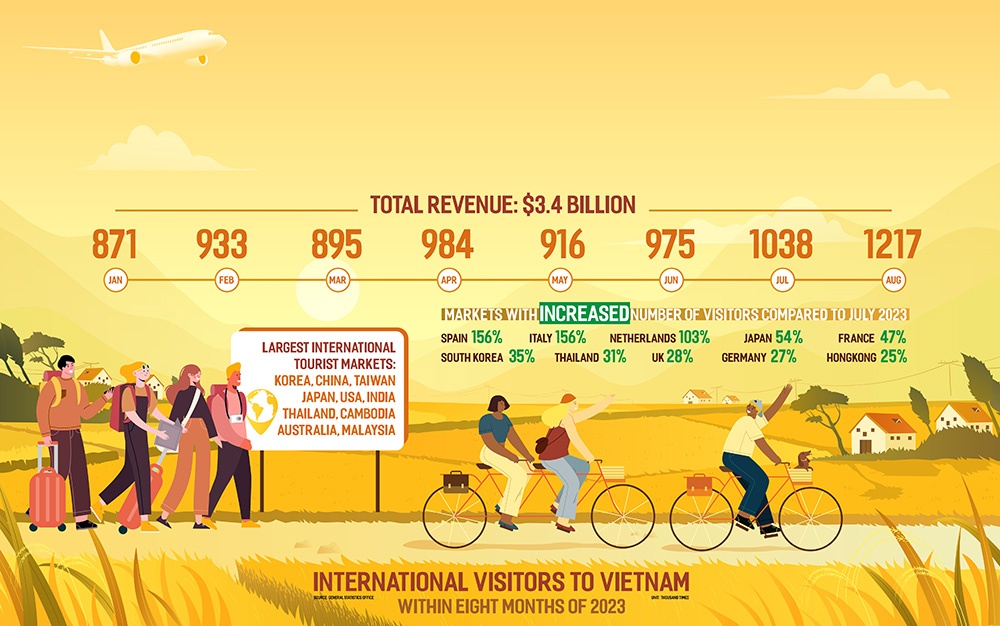 |
| Vietnam’s new visa policy creating growth engine in tourism |
The visit was deemed a special event marking a new stage of inbound tourism. Just a fortnight earlier, the Vietnamese government had approved a number of visa reform policies to make the process easier for international visitors.
“We hope this event a strong boost for Vietnam to continue to welcome many world-class cruise ships to other renowned tourist destinations such as Ha Long Bay, Cat Ba, Phan Thiet, and Phu Quoc,” said Nguyen Trung Khanh, director of the Vietnam National Administration of Tourism.
On August 15, the new visa rules took effect. Upon being granted an e-visa, a foreigner can enter and exit as many times as they wish within 90 days of, without following any new e-visa issuance procedures.
Citizens of countries unilaterally exempted from visas by Vietnam will be granted a temporary residence period of 45 days instead of 15 days, and they can also be considered for visa issuance or temporary residence extension according to regulations.
The new visa policy has already created positive effects for Vietnamese tourism. According to data from the online travel platform Agoda, the number of searches from international visitors for information about the new visa policy rose by one-third within two weeks since adoption. Most of the searches came from long-haul travellers from North America, the EU, Australia, and New Zealand.
Not only contributing to promoting the tourism industry, the new regulations are also expected to draw in people to seek investment opportunities combined with long-term travel.
Nobuyuki Matsumoto, chief representative of the Japan External Trade Organisation in Ho Chi Minh City said, “An open and long-term visa policy is expected to have a positive impact, especially for business travellers, which is expected to increase in September after the peak domestic tourism season in Japan ends.”
In the first seven months of this year, Vietnam welcomed over 283,600 Japanese tourists, more than 600-fold higher than in the same period last year. However, the number of visitors only reached 54 per cent compared to the same period in 2019.
Nguyen Chau A, general director of Oxalis, a Son Doong tour operator that is very popular with international tourists, recommends that in order to maximise the effectiveness of the e-visa policy, Vietnam should consider issuing visas on arrival for at least 100 markets, instead of 80 like today.
“The tourism industry can increase the number of markets that are unilaterally exempted from visas and issue various types of e-visas with a duration of 1-12 months depending on the subject, market, and territory, but it is necessary to allow multiple entry and exit,” Chau A said.
Reforms in visa policy are the long-awaited desire of tourism businesses. Many have also taken advantage of the opportunity to build suitable products, preparing for a boom period.
Tran Phuong Linh, marketing and IT director at Ben Thanh Tourist Company, said that it has sent notices about Vietnam’s new visa policy to a number of partners in important markets such as Europe and the United States.
“We expect it to have a positive effect, helping the international tourist market this year to achieve a growth rate of 70-80 per cent compared to before 2020,” said Linh.
CEO of Travelogy Vietnam, Vu Van Tuyen, said it has prepared more than 260 long-term travel programmes with more attractive activities for European tourists, the main customers of Tuyen’s business.
“With a 90-day stay in Vietnam, travel companies can offer programmes lasting 3-6 weeks. As a result, visitor spending will be higher, the rate of stay is longer, and Vietnam’s tourism suppliers and supply chains will develop quickly,” Tuyen assessed.
Along with diversifying products, representatives of many tourism businesses said that it is necessary to upgrade the quality of services and products to increase visitor spending.
Pham Xuan Quy, CEO of Inbound Vietnam International Travel, said that on-site services are essential in the industry.
“Hotels, restaurants, and shopping malls must be professional and improve service quality to attract and retain customers and stimulate them to spend more,” Quy shared.
According to the General Statistics Office, Vietnam served 1.2 million foreign arrivals in August alone, an increase of 17 per cent over the previous month, and also the highest number of international visitors since the beginning of 2023.
The country has welcomed more than 7.8 million international visitors within the first eight months of 2023, meeting 98 per cent of the target set for the whole year.
| Nguyen Trung Khanh - Director, Vietnam National Administration of Tourism
New visa policy will entice high-paying customers to Vietnam. The adjustment of some contents in the law has created new advantages to attract foreigners and international tourists to Vietnam. The Ministry of Culture, Sports and Tourism recently issued the Vietnam Tourism Marketing Strategy for 2030 and launched a project to develop various models of night tourism products. However, the industry still has many problems to be solved, including building products to meet the needs of long-term holiday-goers, high spending visitors, and developing key tourism markets. The Tourism Development Support Fund was established, initially, to meet national promotion and support product development in some localities. To meet the needs of promoting and introducing the country, culture, and people of Vietnam as well as the potential of its tourism, it is necessary to have the cooperation of localities and especially enterprises to have more methodical, professional, and effective programmes. Christophe Pairaud - Cluster general manager Novotel Hanoi Thai Ha & Novotel Suites Hanoi
The effort to attract international visitors to Vietnam depends on many factors, such as government policies, destination promotion, attractive new destinations, service quality and more. Nevertheless, I think the new visa policy will helpfully contribute to increase the demand or to extend the stay of international travellers. The extension the e-visa duration will bring opportunities for tourists to have longer stays and to visit more places in Vietnam. The process of providing visas and work permits being delayed has emerged as the most notable issue. The fact that from August 15 the Vietnamese government extended the temporary residence for citizens from EU members and some other countries to 45 days from the time of entry will significantly create more favourable conditions for business travelers with longer business trips. In 2023, we expect to provide around 60,000 room nights for all markets including business and leisure segment. In order to deliver more attractive offers, we have promoted inclusive packages, such as stay and dine with special offer for leisure travellers; and have focused on enhancing the service quality to deliver great experience and bring guests of both business and leisure segment a comfortable, convenient stay. Martin Koerner - Head, Tourism Working Group Vietnam Business Forum
It is encouraging to see that Vietnam is considering expanding the list of visa exemptions for all European Union member countries. This proposal will bring many opportunities and benefits for both Vietnam and the EU, especially in the tourism sector. Visa exemption could boost the tourism industry in Vietnam, which welcomed more than 18 million international visitors in 2019, of which about two million came from Europe. However, in 2020, the number of international arrivals declined by nearly 80 per cent due to travel restrictions and border closures. By granting visa exemptions for more European countries, Vietnam will attract more tourists who are looking for safe and affordable destinations. Europe is a market of over 500 million people who tend to stay longer in long-haul overseas travel (more than 2 weeks on average) and who have a high spending power. By removing the visa barrier, more European tourists may choose to visit Vietnam or extend their stay in the country. This will generate more revenue for related businesses such as hotels, restaurants, transport operators, tour guides, and souvenir shops, etc. and will have a strong impact on the industry supplying the tourism economy. Visa exemption will create more jobs and income opportunities for local people. The tourism industry is a labour-intensive sector that employs numerous people directly or indirectly. By attracting more tourists, the sector could create more demand for labour and skills, especially in rural or remote areas where tourism is a major source of livelihood. Visa exemption will also stimulate the development and diversification of other economic sectors. The tourism industry is a catalyst and a beneficiary of other economic activities, such as agriculture, manufacturing, services, and infrastructure. By increasing demand and supply, the sector could encourage more investment and innovation in other sectors that are linked or complementary to tourism. This would enhance the productivity and competitiveness of the overall economy, and foster the structural transformation and modernisation of Vietnam. Visa exemption will also foster the cultural and educational exchanges between Vietnam and the EU, which are important for mutual understanding and friendship. Vietnam and the EU share many common values and interests, such as peace, stability, green transformation, and sustainable development. By allowing more Europeans to visit Vietnam without visas, Vietnam and the EU could enhance their dialogue and cooperation on various issues. However, there are still some challenges that need to be overcome to ensure smooth implementation. One of them is updating the website for applying e-visas, which has flaws that cause confusion among potential visitors. Vietnam should address this issue as soon as possible to improve its image as a welcoming destination for European tourists. Christoph Marcel Strahm - General manager Pan Pacific Hanoi
The approval of the new visa policies is a positive step to ease off procedures and also make it more convenient for foreign visitors to choose various leisure, cross-country, and regional tours. In addition, travel companies are poised to take advantage of the policy to attract more tour operators, tour leaders, and sales teams to Vietnam. It has a significant and positive impact on the tourism industry in general. With these more open and convenient visa policies, opportunities to stimulate tourist spending and keep visitors for longer stays are expanding as it reduces the burden regarding to the complicated procedures. They have time to completely immerse themselves during any trip and enhance experiences linked to the daily lives of local people, customs, traditions, and eateries. A trip full of “oomph” factor is a major reason that tourists return to the same destinations and spreading more word-of-mouth. The vision of friendly and sustainable tourism is being revitalised. In the first half of the year, we lost share of the global tourism arrivals and the complicated policies could be a contributory factor to the slower recovery pace. However, the number of international guests staying at Pan Pacific Hanoi from Q3 is expected to increase significantly thanks to the new visa policy. During the last months of the year, we have planned to target key markets and enhanced our presence. We will be inviting familiarisation groups to our hotel to provide an exceptional experience and keep them updated on our latest products and offerings. Additionally, we are organising sales trips to explore and develop potential markets in Taiwan, Spain, Australia, and India. Moreover, we have created unique and attractive tourism products and implemented seasonal promotions. For example, Pan Pacific Hotels Group recently launched the Brand Experience programme, an initiative to bring the brand to life, to connect with guests, and to cultivate loyalty. This goes to show our proactive strategy to stay ahead of market trends and competition, leading our hotel to achieve promising growth in the coming time. Matthew Lourey - Member, Human Resources and Training Sector Committee EuroCham
At present, only seven of the 27 European Union member countries are eligible for Vietnam’s 45-day visa exemption, whist citizens from the other member countries are required to apply for an online tourist visa. Given the relationship between the EU and Vietnam, and the single market that the EU presents, it would appear on the surface that expanding visa exemption status to all EU member countries would be a practical extension of the current approach. As a single market, citizens of member countries reside all over the EU, creating a society that is intertwined in many ways. The Vietnam-EU Free Trade Agreement is evidence of how Vietnam and the EU look at each other as single markets, and extending visa exemptions reflecting this relationship would be a foreseeable and justifiable decision. We see a significant number of visitors to Vietnam from countries with visa exemptions, including France and Germany, along with visitors from the UK, Japan, South Korea, and Singapore, and if further visa exemption policies were extended to other developed economies, including those outside the EU, then Vietnam would benefit considerably. Of the 13 countries that have had more than 100,000 visitors to Vietnam in 2023 thus far, only four of these countries do not have visa exemptions – showing that the existing small number of countries with exemptions are far overweight in representation with visits. Now, challenges exist with exemptions. The host country forgoes the ability to pre-screen applications and also forgoes visa application revenue. However, this does need to be offset against additional visits and revenue for the host-country with in-country spending; reducing infrastructure spending, maintenance, and staffing that maintains the visa applications system; and additional global publicity as an open destination. Clearly, the easier it is to visit a country, the more visitors that a country will be able to attract. Visa policies themselves do present challenges, though, with the balancing of the control of borders and revenue from visa applications, versus additional visitors and the spending they inject into a country. When deciding to travel abroad, individuals generally first look at shortlisting destinations and then consider the process of travelling to the country. The notional hassle of arranging a visa, even if a relatively simple online application, is off-putting and results in lower tourist visits. The functionality of Vietnam’s visa application process remains concerned, arising with payment problems and delays in meeting stated visa issuance timelines. Removing the need for all EU member citizens, along with other developed countries, in needing to apply would remove the pressure on the visa issuance system and facilitate a better process for all others. Varun Grover - Country head for Vietnam Booking.com
The new visa policy will present a great opportunity to boost tourism in Vietnam, encouraging more international travelers to visit, explore and stay in the country for longer. We recently released our Asia-Pacific Travel Confidence Index for 2023 with promising insights about the ever-changing behaviors and preferences of travelers around the Asia-Pacific region. Despite complex global challenges, this year’s research uncovers a striking paradox: a remarkable 73 per cent of Asia-Pacific travellers maintain unwavering optimism for their future travel plans in the next 12 months, while just over half have no intention of postponing their travel plans. When it comes to travel motivations, the top motivation for travel for travellers is the pursuit of relaxation, rejuvenation, and an escape from the chaos of everyday life. When it comes to travel experiences, these travellers like to seek out food, nature, tourist attractions, and beaches. We are also seeing an impressive 63 per cent across 11 regional markets choosing food and dining as one of the top experiences on their travel agenda, solidifying the region’s undisputed status as the ultimate destination for food enthusiasts. In terms of travel budget, travellers are also planning strategically to reduce cost in various parts of their trips, including accommodation and destination selection with 42 per cent likely stay at budget-friendly accommodation and 37 per cent mentioning that they would travel during off-peak times. |
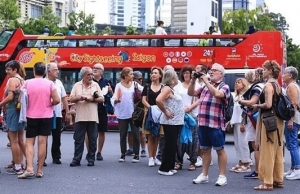 | Tourism sector moves to optimise new visa policy The new visa policy, coming into force on August 15, is believed to open up various opportunities for tourism development, and stakeholders in this industry are taking actions to seize those chances. |
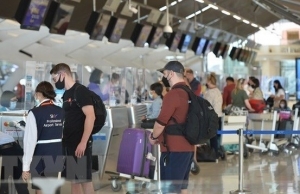 | New visa policy helping facilitate tourism development: Authority The new visa policy is presenting an opportunity for Vietnam's tourism industry to enhance its competitiveness, said the Ministry of Public Security’s Vietnam Immigration Department during a press conference in Hanoi on August 30. |
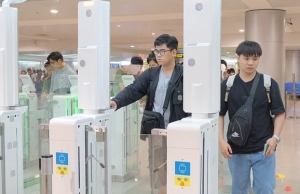 | New e-visa policy to help lure more foreign visitors: Official The e-visa policy, which took effect from August 15, is expected to help Vietnam attract a hike in the number of international visitors right in the autumn-winter tourist season of 2023, said Do Van Hao, Deputy Chief of Police at Tan Son Nhat International Airport in Ho Chi Minh City. |
What the stars mean:
★ Poor ★ ★ Promising ★★★ Good ★★★★ Very good ★★★★★ Exceptional
Related Contents
Latest News
More News
- Wine securing a stronger foothold in Vietnamese market (June 09, 2025 | 10:50)
- Vibrant Vietnamese cuisine fit for global tastes (June 09, 2025 | 10:42)
- Vietnam can be global hot spot in 2025 (January 29, 2025 | 00:38)
- Promoting tourism and hospitality with sustainability (January 28, 2025 | 09:00)
- Vietnam centres on eco-luxury tourism and hospitality (January 28, 2025 | 02:06)
- Growth prospects for Vietnam’s event tourism in 2025 (January 28, 2025 | 01:18)
- Core values drive success at Marriott (January 24, 2025 | 16:00)
- Hoteliers to prioritise eco-luxury (January 04, 2025 | 09:00)
- Vietnam upscale tourism on the rise for 2025 (December 30, 2024 | 12:03)
- Addressing concerns can shape green hospitality (December 04, 2024 | 10:24)

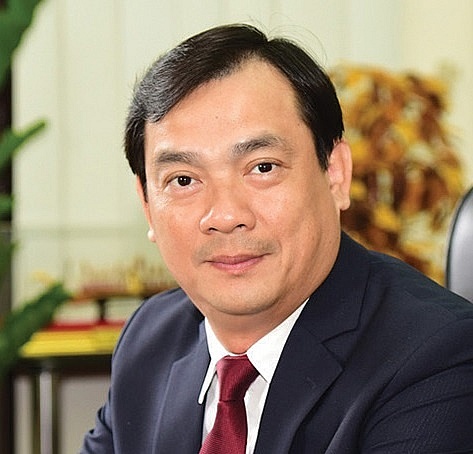


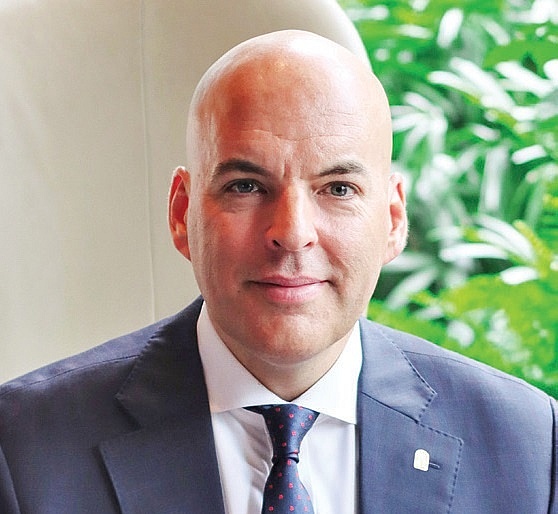

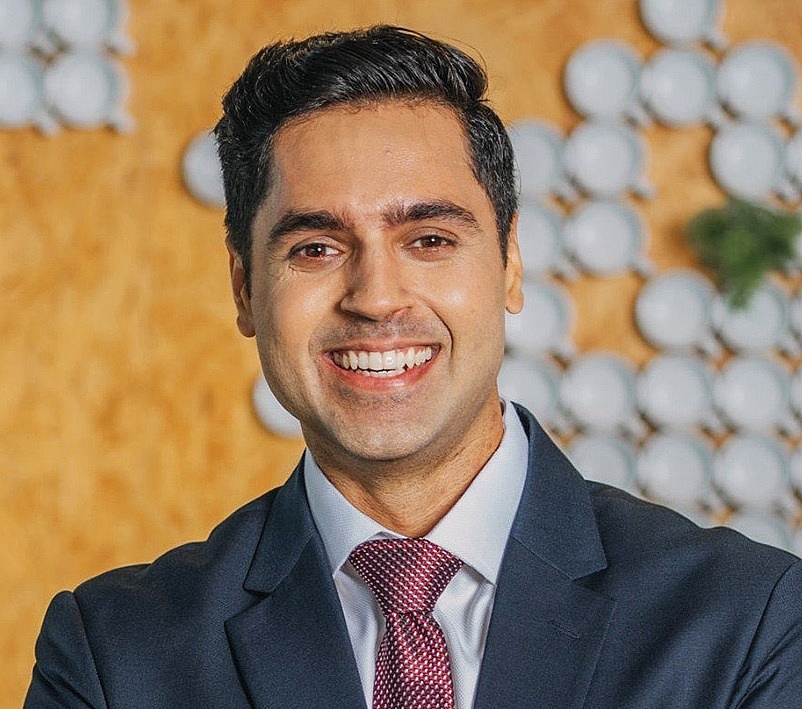
 Tag:
Tag:



















 Mobile Version
Mobile Version